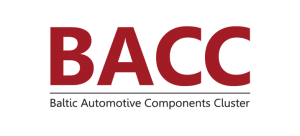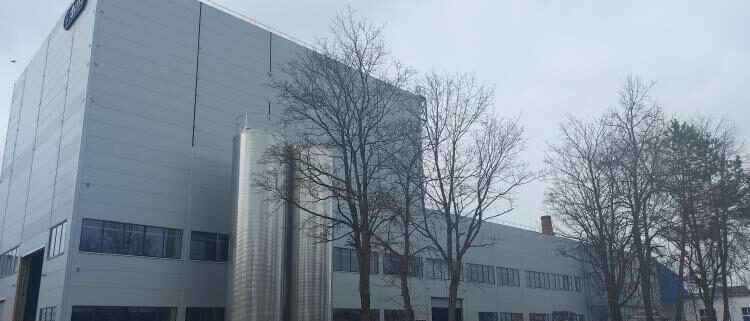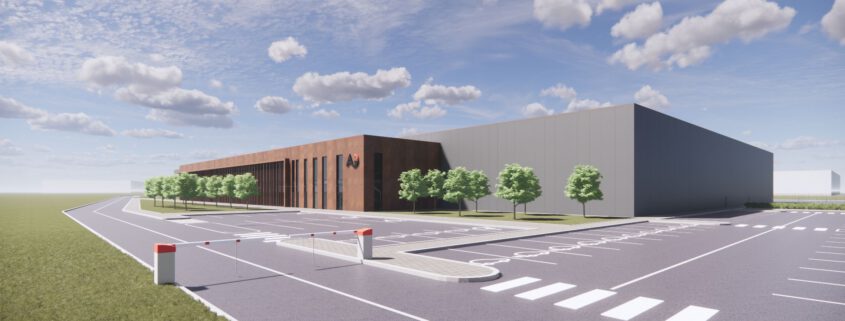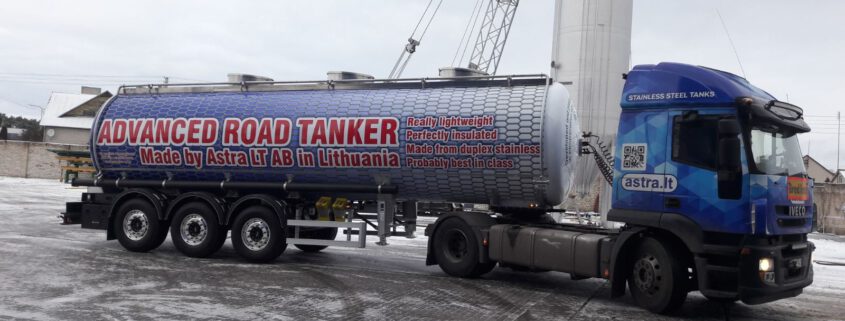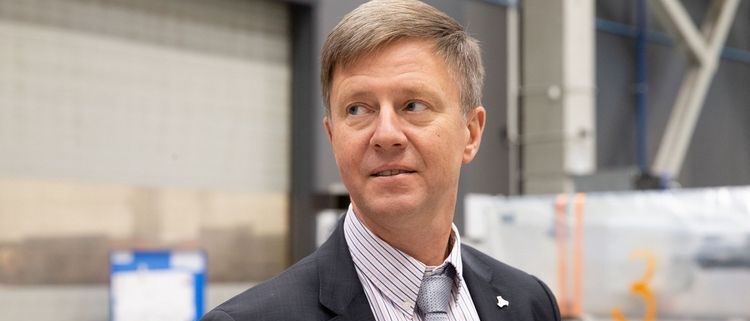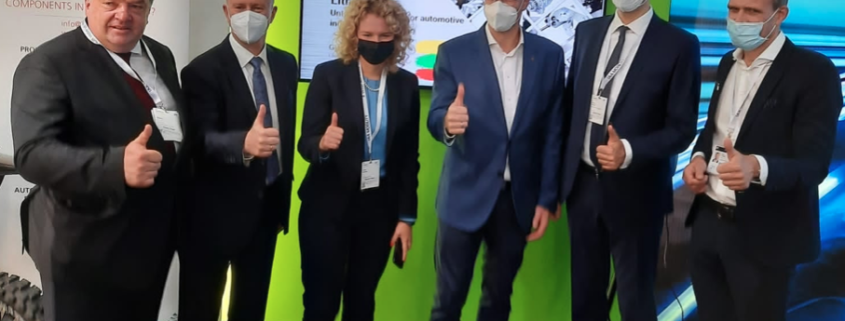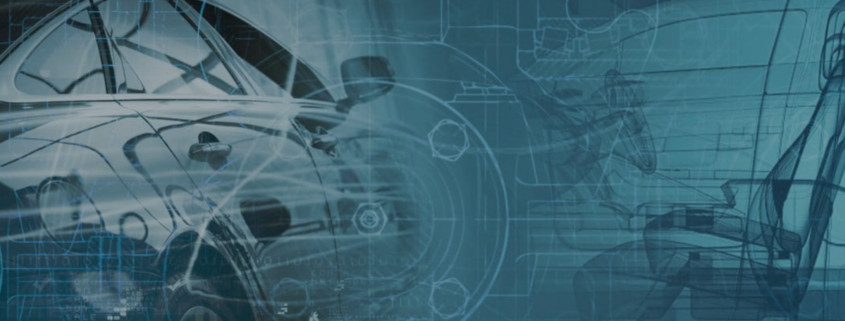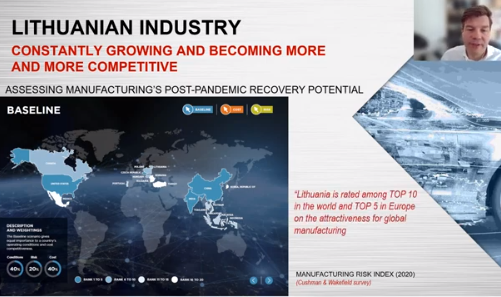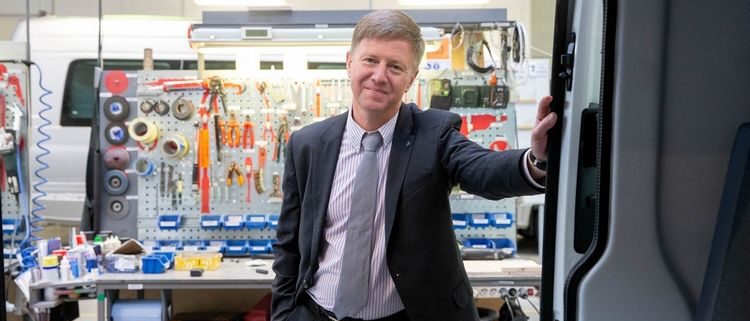The new 20-metre-tall experimental production laboratory will help AB “Astra LT” write another page in its history. The investment of approximately 6 million euro will enable the company to produce stainless steel storage tanks of an especially large dimensions. This will make the Alytus-based company even more competitive in the Baltic region, explains CEO Vaidas Liesonis.
According to the CEO, the manufacturer of stainless steel tanks and pressure vessels for the food, chemicals and oil industries has in recent years received customer inquiries about making large storage tanks, pressure vessels and mixing equipment.
In the past, for example, dairy companies might have ordered 50-cubic-metre storage tanks, but now it is not unusual for a milk processor to order storage tanks three or four times larger, with a volume of up to 150 or 200 cubic metres.
Noticing the evolving needs of customers, the company also saw an opportunity.
“Many manufacturers are not able to produce storage tanks with a diameter of 6 metres,” the CEO explains, speaking of a niche he noticed several years ago.
The new experimental production laboratory, in cooperation with the Lithuanian Energy Institute, as with a reliable Astra’s LT scientific partner in R&D activities, and will have the capability of development and production large-dimension storage tanks, ant reactors with or without integrated heat exchange and mixing equipment.
The CEO says, “This will be a big step forward.”
According to Liesonis, R&D is an especially important activity, because the company makes custom-made products and has to devise its own solutions.
The CEO gives an example. “A customer says, ‘I need a reactor tank, where I will mix three different components. Each of them has a different level of chemical aggressiveness. And we will pour these materials – acidic, alkaline – in such-and-such proportions, and in 53 minutes we will heat them from this temperature to that temperature. Can you design a heat exchanger that will heat up like this?’”
The ability to offer one-of-a-kind products is one of the company’s greatest advantages, which creates a lot of opportunities, says Liesonis.
The company receives most of its orders from customers in Baltic and Scandinavian countries. The company recently shipped goods valued at 4 million euro to Sweden, where it is meeting orders related to construction of a chemical factory applied for automotive equipment production.
Observing possible competitors in the region, Liesonis remarks that from now on, “Astra” will be especially competitive. His data indicates that there are no companies with equivalent capabilities in the neighbouring countries. The nearby competitors are only able to manufacture analogous products of smaller dimensions.
Testing a new product
Last year the company completed the process of creating, manufacturing and certifying a new product, a road tanker semi-trailer prototype for liquid food products.
The new road tanker boasts good insulation, and is made using Duplex stainless steel. At present, the road tanker prototype is being used by potential future customers to transport liquid food products, such as cream, oil and so on.
“The company is beginning production of the first three road tankers for commercial sale, and we expect to start serial production of the road tanker in the near future,” the CEO says.
More expensive metal has not impacted production
At present, the company has orders for the next 5–6 months.
A total of about 500 separate products are manufactured each year. Of these, 250 are for different designs.
Last year, the company’s turnover was 21.7 million euro. That was 10.6% more than the year before last, when turnover was 19.6 million euro.
Last year, the company earned a profit of 2.1 million euro, while its profit in 2020 was 2.377 million euro.
By 2023, Arginta Engineering UAB intends to construct, in the Panevėžys free economic zone, a factory with up to 100 jobs in the first development stage and with up to 300 in the following few years. New jobs will be created for programmable machine operators, welders and production workers of other professions as well as apprentices.
EUR 15 million are planned to be invested in the construction of the new factory including EUR 5 million in Stage 1. Three development stages are projected. The estimated area of Arginta Engineering’s factory is 15,000 square metres. Modern production, office and amenity premises will be fitted out.
For the convenience of employees, a new parking lot for both conventional and electric cars, with charging stations for the latter, will be provided at the factory.
The company has stated that the new production building will be used for the manufacture of intermediate products to be supplied to factories in Finland and Vilnius where finished products will be assembled and tested. Equipment produced by the company will be continued to be designed in Vilnius.
Arginta Engineering provides the services of producing equipment and machines for world-renowned companies. Approx. 400 people are employed by the factories in Lithuania and Finland. On completion of all the development phases, internal production processes will be optimised and the estimated total turnover of both factories should reach EUR 60 million.
Astra LT has designed and built a prototype of a new tanker for long-distance transport of hot or refrigerated food products. The new product offers the following distinctive features:
– the 30 m3 three-section tanker is really light, weighing 6,130 kg;
– the tanker is exceptionally well-insulated, with a 110-mm-thick layer of next-generation polyurethane foam resulting in an extremely low thermal conductivity of k=0.360W/m2K;
– the tanker is made of the new Duplex 1.4162 stainless steel, which is well-suited for the transport or storage of any liquid food product, including aggressive (corrosive) foodstuffs or food components for which austenitic AISI304L or AISI316L stainless steels are not suitable;
– Duplex steel also features very sturdy mechanical properties, which allowed the prototype to be made relatively lightweight and permitted a further reduction of the weight of the tanker.
The lower weight of the tanker allows for a larger quantity of product to be loaded. For transport of hot products, tankers currently on the market are usually equipped with an additional heating system, but this increases the weight of the vehicle and reduces the permissible load. In addition, the very principle of using less insulation and compensating for the resulting heat loss by burning additional diesel is not sustainable. Astra LT’s new tanker has a level of insulation such that, after filling the tank with 27 t of chocolate heated to +90 °C, it can be transported or simply stored for 11 days at -20 °C without any risk of the product congealing, because after 11 days the chocolate will remain at least +45 °C and will still be able to be pumped. In summer, at an outdoor temperature of +20 °C, the same amount of hot chocolate (27 t) will take 23 days to cool to +45 °C. In fact, the excellent insulation allows the tanker to be used not only as a vehicle for transporting a hot product, but also as a container for short-term storage at the customer’s premises.
The prototype has been fully completed, an expert examination has been performed and the tanker has been authorised for vehicle registration. The factory is currently preparing to manufacture the new product, is coordinating technical details with partners, and expects to start production in the near future.
Last week Darius Lasionis, Executive Director of the Baltic Automotive Components Cluster (BACC), participated in the Automotive Supplier Summit 2021, held in the German city of Wolfsburg.
During the event, challenges and trends in the automotive sector were discussed. Several aspects were identified, which are especially relevant at the present time: how to remain competitive and how to face the challenges of the New Mobility Era. The idea was proposed that purchasing must be a central success factor for achieving corporate sustainability goals.
Participants also devoted much attention to analysing disruptions of the raw materials and components supply chains, while at the same time emphasising that new and significantly stricter requirements for manufacturers and suppliers are emerging.
One of the most important trends is that major companies plan to select their suppliers, or review their lists of existing suppliers, according to certain criteria, and will demand from suppliers such things as an internal Code of Ethics and Sustainability. It is very important to global automotive companies that suppliers be socially responsible. Suppliers will be encouraged to observe Green Economy principles, and criteria such as a company’s CO2 emission ranking will arise. This is a new challenge, but at the same time presents new opportunities for Lithuanian companies. It is well worth paying attention and preparing now. All of the above-mentioned points will not be put into practice very quickly; rather, they will gradually come into force as more and more companies implement their company policies according to these criteria and requirements, and simultaneously demand the same from their own suppliers and partners.
What is the real situation of the Lithuanian Automotive sector? Why it’s complicated to fulfill orders of clients? What could be a solution?
The annual growth of the Lithuanian Automotive sector is decreasing. This is the worst result of the production during the last 11 months. It is possible that the results of the Lithuanian Automotive components industry could be not very optimistic till the end of 2021.
Representatives from the BACC see one of the solutions – subsidies from the Government of Lithuania which could retain employees and help to survive a quite complicated period for business.
SOURCE and PICTURE: Verslo žinios.
This week, BACC and its members, Lithuanian business companies as well as LINPRA members are participating at one of the world’s largest cars’ and mobility exhibitions, – IAA MOBILITY (Germany, Munich). Representatives from the Ministry of Economy and Innovation, the Ministry of Transport and Communications, R. Misiulis, Lithuanian Ambassador in Germany and other guests are visiting the exhibition together with the companies representing Lithuania.
Today, Giedrius Valucas and representatives of the Lithuanian delegation introduced Lithuanian companies which have a purpose to strengthen existing and establish newbusiness relations with German car manufacturers as well as manager industrial companies and corporations.
Last week, the webinar “Baltic States – opportunities for the UK automotive”, organized by SMMT, took place online. Speakers from three Baltic countries made presentations about the automotive sector and the actual situation. Lithuania was represented by four speakers: Giedrius Valuckas, the Chairman of BACC; Darius Lasionis, the CEO of BACC; Laurynas Jokužis, the CEO of Elinta Motors, UAB, Alvydas Naujėkas, the CEO of Vėjo projektai: e-buses Dancer producer.
Giedrius Valuckas presented economic and business environment in the Baltic countries as well as all the advantages of manufacturing, and perspectives of the automotive sector.
Valuckas emphasized that the economy of 3 Baltic countries were recovering fast despite the lingering pandemic. Baltic countries have perfect infrastructure and due to the favorable location perfectly serves Northern, Western and Eastern European markets. The Baltic countries could be a manufacturing and logistic hub which has great potential for business connections between the UK, Lithuania, Latvia and Estonia.
Due to strong engineering and technical skills, multicultural environment and rapid development Baltic states become interesting partner to develop manufacturing projects.
Darius Lasionis presented the BACC cluster and its activities. He emphasized that Lithuania was rated among TOP 10 in the world and TOP 5 in Europe in terms of its attractiveness for global manufacturing. The CEO also presented the services and products that BACC companies can provide to partners in the UK. Lasionis discussed about the international companies which have been successfully operating in Lithuania for many years.
We believe in fruitful cooperation between the UK and Baltic companies in the automotive sector.
Lithuanian Automotive companies successfully withstood the COVID-19 pandemic and the amount of orders the 1Q in 2021 have significantly increased compared to 2020. Automotive companies – BACC members are developing new products and services. Lithuania and the Baltic States are being “discovered” due to their well-developed infrastructure, good geographical location connecting the markets of Eastern, Northern and Western countries, available engineering competencies and competitive environment.
We believe that new business partners will find suppliers – BACC companies and start developing common projects.
There are 14.6 million of Europeans directly related to the Automotive industry.
It is planned to retrain 700,000 employees each year, which will cost about 7 mln. Eur.
There are about 50 companies working in the Automotive industry in Lithuania.
Local manufacturers claim to have their own strengths and flexibility.
The competition for the production of components for the new generation of cars is becoming more intensive.
Discover more (source and photography): Verslo Žinios.
